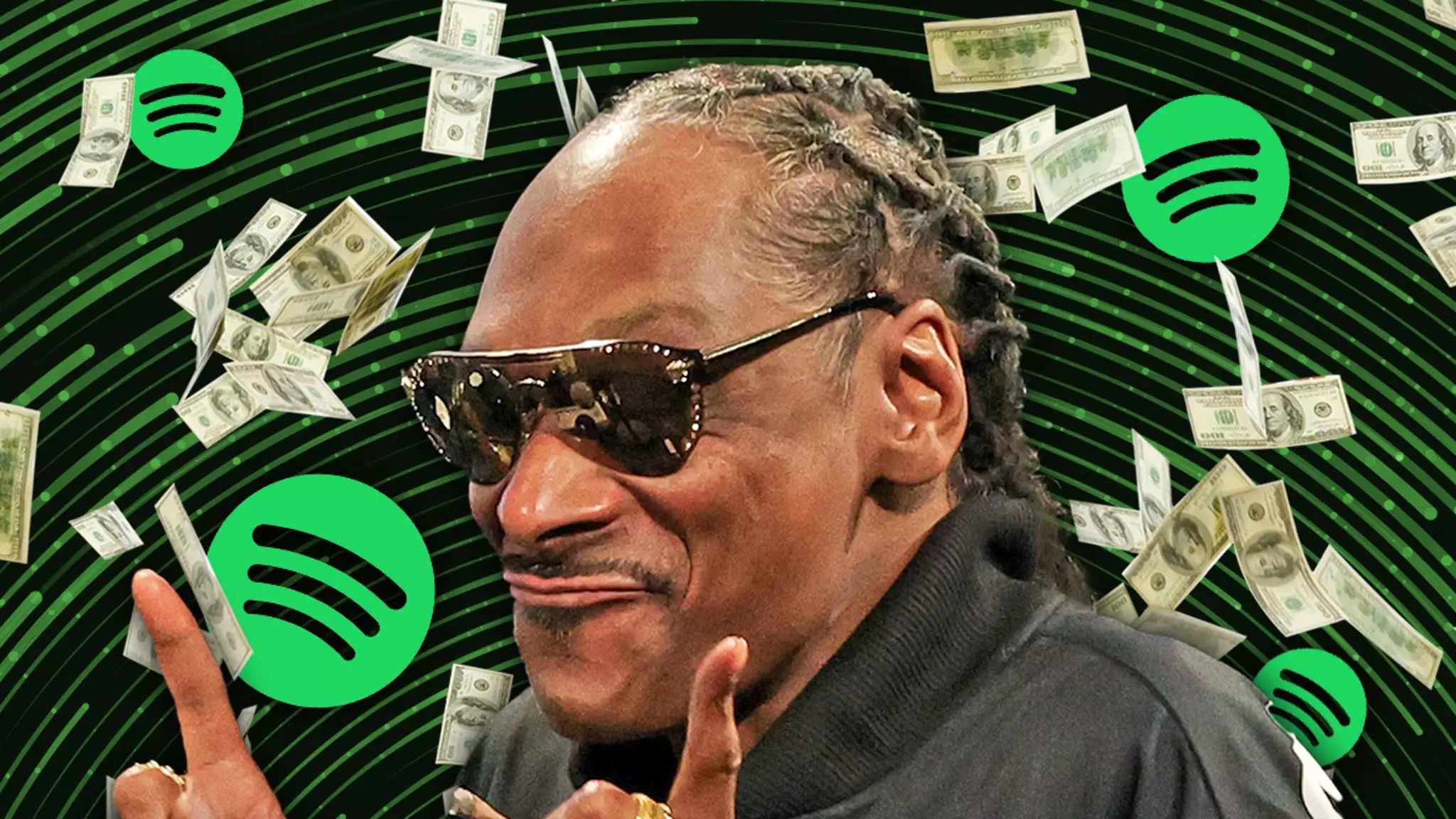Snoop Dogg, an indelible figure in the hip-hop industry, recently ignited discussions about digital music revenues when he criticized his earnings from Spotify after racking up a staggering billion streams. Announcing his partnership with Tune.FM, Snoop suggested a potential pivot away from traditional streaming platforms, citing unsatisfactory compensation for his unparalleled success in the music industry. His previous assertion that he only received $45,000 for a billion streams left many, including himself, bewildered, raising questions not just about the fairness of streaming payouts but also about the mechanics of deals behind the scenes.
In response to Snoop Dogg’s claims, a Spotify spokesperson clarified that the platform typically generates substantial revenue for rights holders associated with such high streaming numbers. According to their statement, while they could not comment on specific endorsement contracts with Web3 companies, they emphasized that a billion streams usually translate into millions of dollars. This disparity has led to speculation about the financial channels that might have diverted payments away from Snoop himself. With an industry veteran like Snoop asserting dissatisfaction, Spotify’s reply serves to protect its reputation while simultaneously shrouding the intricate realities of distribution and payment structures in streaming.
Snoop’s announcement regarding his collaboration with Tune.FM not only highlights a strategic move towards Web3 but also symbolizes a shift in the artist’s approach to music monetization. By announcing plans to migrate his music catalog, possibly exclusively, Snoop could be positioning himself to reclaim a larger share of his earnings directly. This transition underscores a growing trend among artists who are increasingly drawn to innovative platforms that promise more favorable revenue-sharing models and greater control over their content. A new track release coinciding with this announcement, which is yet to make it onto Spotify, indicates Snoop’s commitment to leveraging this newfound partnership as a vehicle for artistic and financial freedom.
Snoop Dogg’s situation encapsulates broader discussions surrounding streaming services, their fairness, and their treatment of artists. As listeners’ preferences shift and more artists like Snoop explore alternative platforms, it raises critical questions about how established services like Spotify will adapt to remain relevant. The continuing debate over fair compensation in streaming is crucial, especially as artists contemplate where they invest their music-moving assets. Snoop’s move to Tune.FM signals a potential turning point for both himself and others in the industry who may follow suit, indicating a growing desire for transparency and equity in artist compensation.
In essence, as Snoop Dogg navigates the murky waters of music streaming and payouts, his latest ventures can resonate far beyond his individual circumstances—potentially influencing a significant paradigm shift in how artists view their financial relationships with music-streaming platforms.

